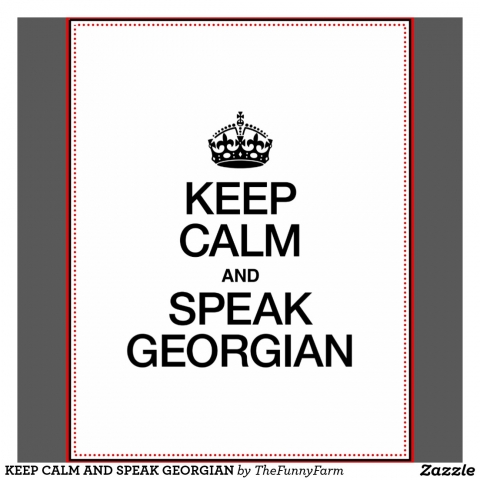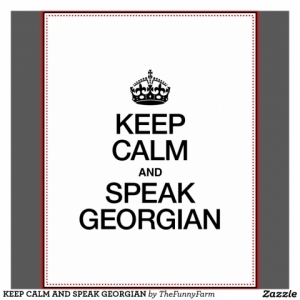Getting their Tongues around the Georgian Language
OPED
It is some sort of taboo in Georgia – as incomprehensible as it seems to be – to remind a certain category of Georgian citizens of the desirability, if not the necessity, to speak Georgian in Georgia, where the Georgian language is constitutionally recognized as an official state language. The segment of citizenry of Georgia I am talking about does not speak Georgian, has no desire to learn it, and often gets irritated if you try to speak Georgian to them, answering you back in Russian, the language of communication in the former Soviet Union. Yet, they were all born in Georgia, have grown up here and have no intention of moving elsewhere.
Surely nowhere else in the world would this happen. It is considered normal everywhere to speak the language of the country you are living and trying to survive in. If the main law of the land has ruled it that Georgian be the state language, why is it deemed acceptable that some of our citizens are not ready to use it in everyday life, and do not even make an attempt to have at least a smattering of it. How come somebody has the right to defy this constitutional provision so openly and persistently?
An even more regrettable fact is that the Georgian non-speakers are isolated from the local culture and national goings-on. The impression is that they are living in a totally different country with absolutely different ideals and aspirations.
What’s the hub of the matter here? Is it that the Georgian language does not deserve to be recognized as the language of communication, and thus be spoken? Maybe it is the unconcerned attitude of this nation about the nonchalance of certain citizens towards the state language of the Republic. Maybe we are afraid to exacerbate separatist attitudes – let the vicious sleeping dogs lie!
How about the government which entertains not enough will and means to have its subjects operate with the help of the language of the state they are in charge of. It could also be the politicians who do not want to overly ‘bother’ their electors, thus securing their valuable votes.
Understandably, if a politician pushes the electorate too hard with a pesky demand to learn the state language, the irritated elector, shrugging their shoulders, might decide to change horses right in the midstream. What politician needs that?!
To compound the puzzle, the possibility of shunning the state language is rooted deeper: those who want to use this land for survival must know the language both formally and informally spoken in the country, but the gist of the matter is that they can easily get by without the Georgian language, using Russian in its stead in most cases, and use their own native tongue to communicate with friends and family. As the saying goes, necessity is the mother of invention.
So, when Georgian becomes indispensable for survival, it will be widely spoken by every citizen of this country. Let us create such indispensability! According to Western democratic ideals, towards which this nation is energetically and decidedly propelling itself, minorities should not be discriminated against on linguistic grounds. Granted! But the question is if the Georgian culture in general and its unique Georgian language in particular should be discriminated against.
There is also an economic side to the problem. Nothing good and useful comes without money. If you want something, you have to spend time, money and energy on it. There is little money in Georgia’s state budget allocated for the purpose of promoting our cultural and linguistic inheritance. You want your people to speak Georgian? Then go ahead and unlock the state coffers to open special centers, schools and courses for teaching the Georgian language, like the British and Americans do- operating extensively around the world under the well-known common name of ESL. Who knows? The current non-speakers might become fluent some day if GSL – Georgian as a Second Language – becomes accessible and affordable to them.
Nugzar B. Ruhadze












